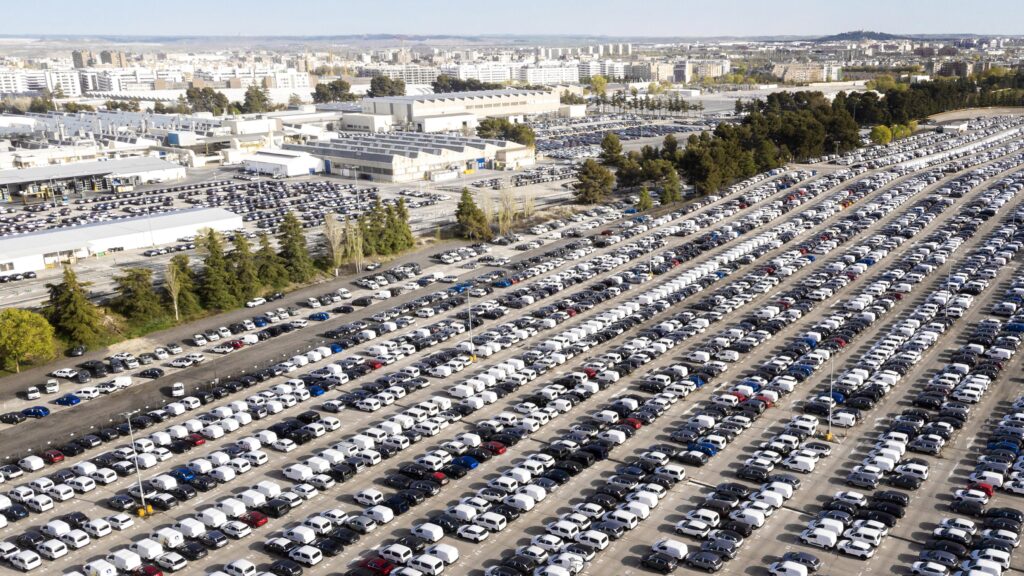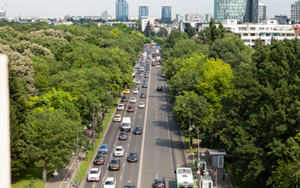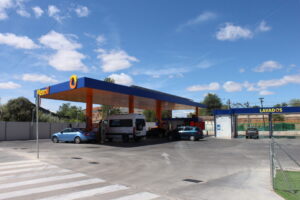Spain has one of the largest automotive fleets in Europe with over 29 million vehicles, but it also has one of the oldest fleets in Europe with an average age of 14 years, compared to Luxembourg’s 6.7 years, which has the youngest fleet, according to the latest data published by ANFAC, Spanish Association of Automobile and Truck Manufacturerss.
Moreover, 70% of Spanish vehicles on the roads are over ten years old.
This poses a danger both environmentally and in terms of safety for drivers.
Over the past 15 years, the vehicle network in Spain has progressively aged.
In 2007, the average age was set at 8 years, resulting in a 6-year increase.
This trend is related to the increasing purchase of second-hand vehicles in recent years.
In 2022, 2.3 used cars were sold for every new car, and 40% of the sales were for vehicles over 15 years old.
The likelihood of having a car with damage increases by 50% when it is between 9 and 11 years old, as confirmed by Carfax, an international provider of vehicle history for car buying and selling.
What is its size?
In recent years, Spain was in fifth place among the largest automotive fleets. However, this year, the top five spots were taken over by Poland, which has 30.13 million units. In contrast, Spain has 29.25 million vehicles, an increase of one million since 2017. Poland, on the other hand, has seen a larger increase of 4 million, despite its population being almost 10 million less. The latest data reveals that Germany still has the largest automotive fleet with 52.72 million, followed by the United Kingdom with 42.87 million, France with 45.72 million, and finally, Italy with 45.2 million. The bottom positions on the list are occupied by Iceland, Luxembourg, Cyprus, Latvia, and Estonia.
Why is a renewal urgent?
Older vehicles lose 64.7% efficiency, resulting in a lack of safety on Spanish roads. These vehicles do not have a sustainable label, so they pollute more. Additionally, not only do older vehicles have environmental consequences, but in 2022, 42% of road deaths were due to road departures, something that newer and more efficient cars could prevent, according to the latest data from RACE.
Therefore, Plenoil has launched the initiative Transición Posible, which is based on listening and dialogue from all necessary parties to move towards a sustainable energy model and progress in the fight against climate change without leaving anyone behind. With this initiative, Plenoil advocates for a renewal of the Spanish automotive fleet to mitigate the carbon footprint with more efficient cars that all citizens can afford. According to Carfax, this renewal is challenging due to the lack of tax incentives, due to “low citizen income,” rising car prices, and the lack of knowledge related to the advantages of these vehicles in terms of safety.
Low Emission Zone
According to the Directorate General of Traffic (DGT), vehicles with labels have experienced a 71.7% increase, translating to 162,071 units. On the other hand, ECO vehicles have increased by 40.11%, but they only represent 0.54% of the total Spanish automotive network, and vehicles with C labels have recorded a 7.4% increase from 2021. “If we want to achieve the demanding objectives set by the European Union and the PNIEC for emission reduction, it is essential that, in addition to establishing an ambitious plan to promote electrification, this plan is accompanied by
measures that actively help progress in the rejuvenation and renewal of the fleet,” emphasizes the General Director of ANFAC, José López-Tafall.





